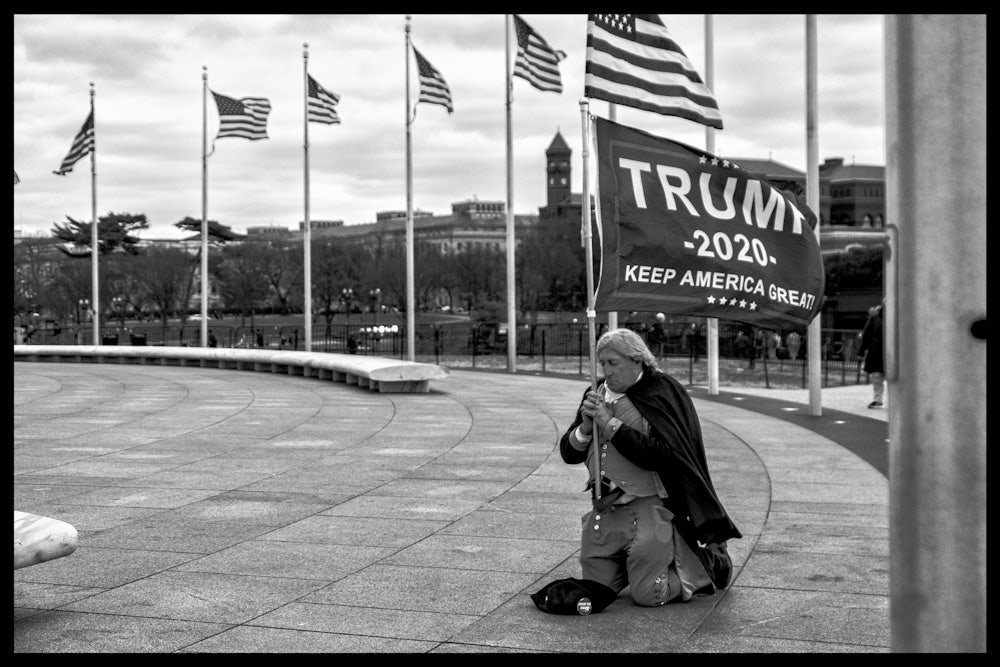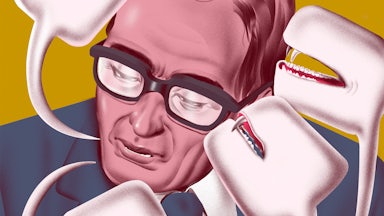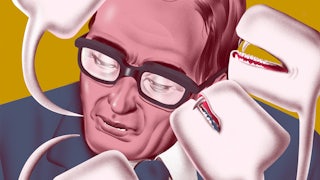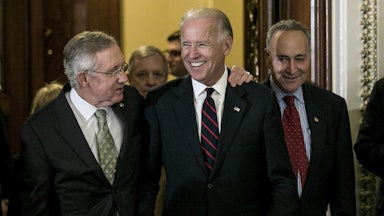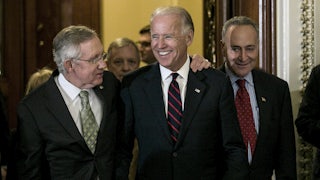In a campaign ad released a few weeks before Georgia’s January Senate runoffs, an aide tells his boss, GOP Texas Representative Dan Crenshaw, “We have two patriots down there, Senator Loeffler and Senator Perdue.” Crenshaw loosens his tie, removes his shirt, and parachutes into Georgia like a comic-book superhero, landing on the car of some unsuspecting antifa members, who wail in terror. In its narcissistic incoherence, the ad was a perfect demonstration of the confusion over what it means to be an American patriot, torn between a schoolboy myth of heroic rebellion and a fawning devotion to power.
It was in that spirit that the Capitol rioters invaded the Senate, looking for traitors and crying out, “Hold the line, patriots.” The right often seems to be reenacting an action movie fantasy of the Revolutionary War, folding a language of “patriotism” into their every leaflet and banner. It’s there in the yellow Gadsden flag waved by the Tea Party, and in the names of dozens of militias active in practically every state, from Alabama’s American Patriots Three Percent to Wisconsin’s III% United Patriots. And it’s in much of the heraldry of the far right, from the tricorn hat sported by one Capitol rioter to the ubiquitous Roman numeral III, a symbol of the Three Percenters movement, whose name derives from a belief that only 3 percent of the American colonists fought for independence.
In fairness, the word itself has never made a lot of sense. A patriot “loves his or her country,” says the Oxford English Dictionary, but it can also refer to one who loves his king. It also references one who supports her country against the king, as the American colonists did. A patriot is a good citizen, lover of order—and an insurgent, an unruly subject.
Given all of these confused loyalties, perhaps the real meaning of “patriot,” what really fuels the sense of attachment it carries, is not the various positive meanings it is occasionally given, but its opposite: not “love of country,” in other words, but hatred of the “traitor.” The Ku Klux Klan, for instance, always pledged its service to civil government, the Constitution, and “pure patriotism,” even when the group waged war on federal and state governments and anyone else who betrayed its notion of “purity.”
Whatever their stated political convictions—open white supremacy, anti-tax zealotry, or QAnon delirium—what appears to nourish Trump fetishists is a boundless sense of betrayal and a bottomless well of self-righteousness. It’s a toxic, ridiculous combination, as Crenshaw’s clownish Avengers impersonation makes clear, but this should offer no reassurance. Our history presents plenty of examples of dangerous clowns, and as ridiculous as our current crop of “patriots” are, their real capacities for violence may still be ahead of us.
